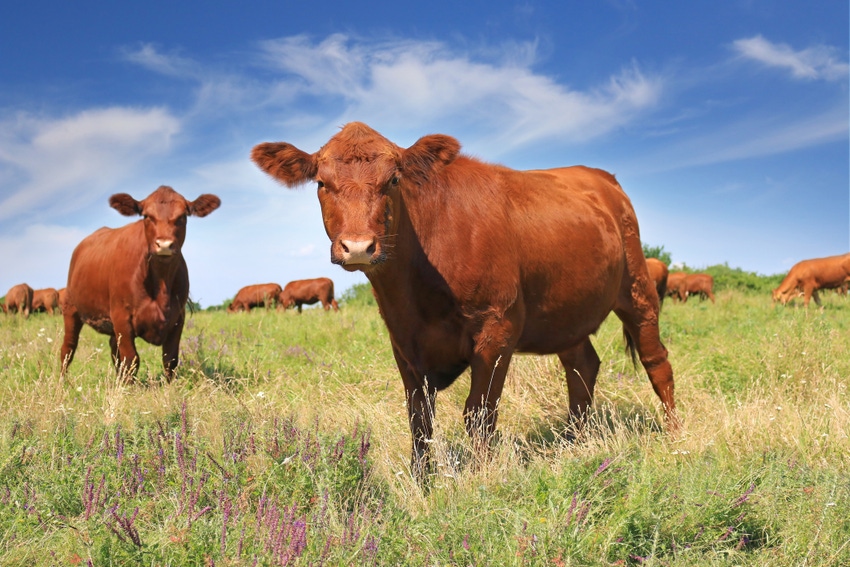More than 100,000 now certified online in checkoff-funded Beef Quality Assurance program.

The Beef Quality Assurance (BQA) program continues to grow significantly, with more than 100,000 cattle producers now certified through its online learning system. The online option was introduced in early 2017 by the National Cattlemen’s Beef Assn., a contractor to the beef checkoff.
Since the BQA program was initiated in the early 1990s, hundreds of thousands have become BQA certified through in-person and online training, with an estimated 85% of the U.S. fed beef supply now touched by BQA-certified operations.
The beef checkoff-funded BQA program is a nationally coordinated, state-implemented program that provides systematic information to U.S. beef producers and beef consumers of how commonsense husbandry techniques can be coupled with accepted scientific knowledge to raise cattle under optimum management and environmental conditions. BQA guidelines are designed to make certain all beef consumers can take pride in what they purchase and can trust and have confidence in the entire beef industry.
Online BQA training, which is also available in Spanish, provides 24/7 access to the program through a series of videos and animations. While in-person training is still available through numerous sessions conducted by in-state BQA coordinators throughout the country, online certification provides a chance for certification at any time. Three courses – cow/calf, stocker/backgrounder and feedyard — deliver a program that most closely aligns with the individual’s operation. Additionally, BQA Transportation training for professional cattle haulers, farmers and ranchers is also available through the platform.
“Over the past year, we’ve doubled our online certifications, which is a tremendous accomplishment,” according to Dr. Bob Smith, chair of the BQA Advisory Board. “This demonstrates that U.S. beef producers and transporters continue to embrace this tool for optimizing quality in their operations. Those participating in the BQA program can be proud of their work, which gives consumers more confidence in the beef they’re buying.”
BQA premium
A study conducted by Colorado State University (CSU) found that BQA certification results in a significant premium for calves and feeder cattle sold through video auction markets.
The research study -- “Effect of Mentioning BQA in Lot Descriptions of Beef Calves & Feeder Cattle Sold through Video‐based Auctions on Sale Price,” led jointly by the CSU departments of animal sciences and agricultural and resource economics -- was conducted to determine if the sale price of beef calves and feeder cattle marketed through video auction companies was influenced by the mention of BQA in the lot description.
Partnering with Western Video Market, CSU reviewed data from 8,815 video lot records of steers (steers, steer calves or weaned steers) and heifers (heifers, heifer calves or weaned heifers) sold in nine western states from 2010 to 2017.
The result was a premium of $16.80 per head for cattle that had BQA listed in the lot description. This value was determined by applying the $2.71/cwt. premium found in CSU’s statistical analysis to the average weight of cattle in the study data. When the BQA premium was constant on a per head basis, it implied higher weight‐based premiums for lighter cattle (for example $3.73/cwt. at 450 lb. per head) and lower premiums for heavier cattle ($2.24/cwt. at 750 lb. per head).
Additional study findings showed that over the past 10 years, consistent frequency of BQA mentions have been included in the lot descriptions of cattle selling via video auctions. In some states like Montana, the frequency of mentions has been fairly sizable, representing 10% or more of all lots of calves/yearlings offered for sale. Even without documentation of a premium in the past, the results imply that, over time, many producers have proactively chosen to highlight and emphasize their participation in BQA when marketing their cattle.
While the study showed financial benefits, CSU professor of animal sciences Dr. Jason Ahola noted that the value of a seller being BQA certified can really only be captured when information is shared between the seller and buyer.
“By sharing the BQA status of the owner or manager of a set of cattle, the buyer can access information that is generally otherwise difficult to find in traditional marketing channels,” he said. “This was a big reason for us to conduct the study, as it became clear that data on sellers’ BQA status were available on a large number of cattle sold through video auctions as well as other traits associated with the cattle.”
The results of the BQA value study emphasized the importance of transferring information from sellers to buyers as well as the importance of collecting BQA certification information during the auction process.
About the Author(s)
You May Also Like



.png?width=300&auto=webp&quality=80&disable=upscale)

